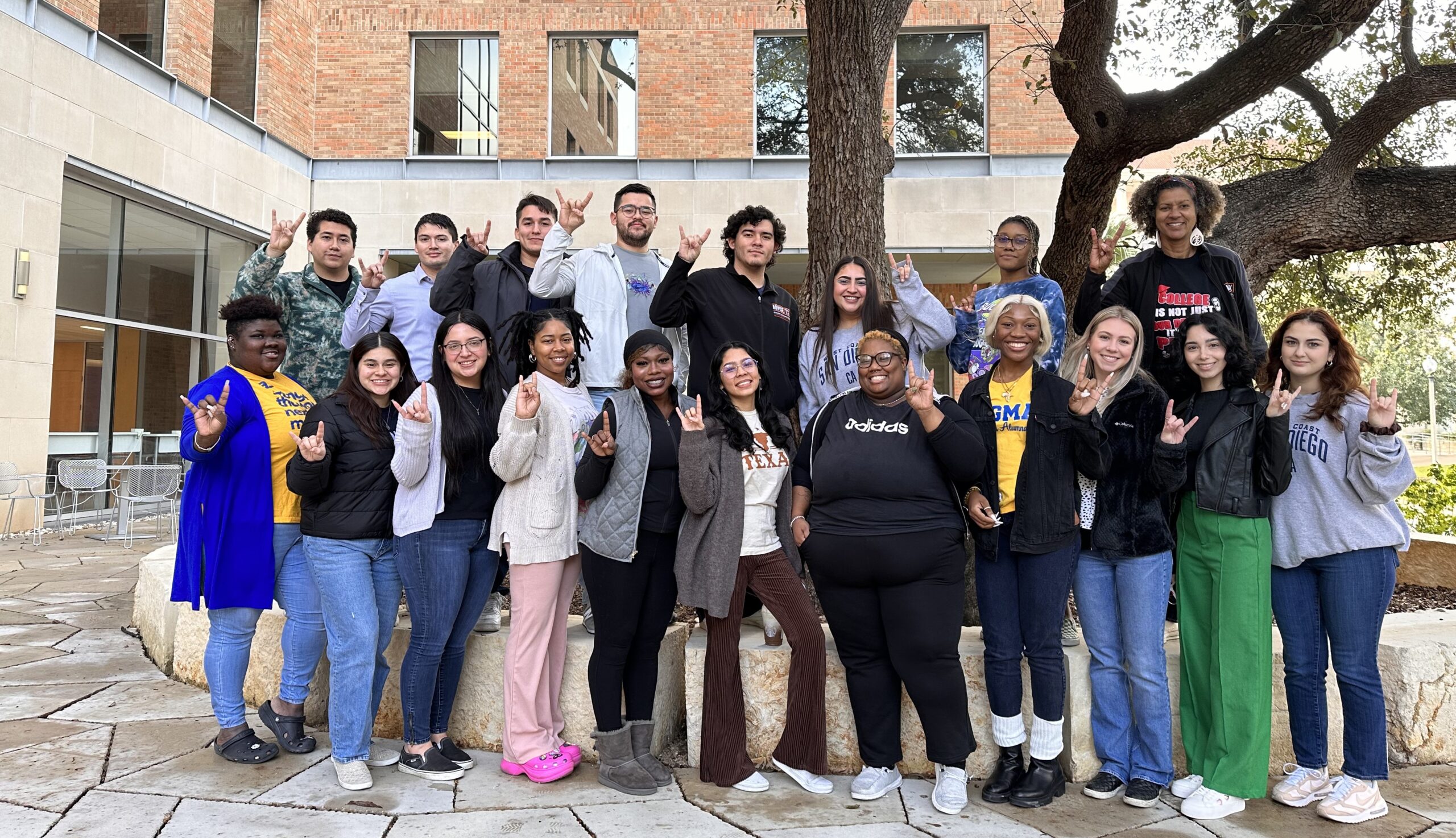
Mission
Advise TX is funded by the Texas Higher Education Coordinating Board (THECB), the College Advising Corps and the school districts we serve.
Advise TX places recent college graduates as full-time college advisers in Title One high schools in five regions of Texas. Advise TX provides the support that students in Title One high schools require to navigate the complex processes of college admissions, matriculation and financial aid. The University of Texas at Austin chapter has 18 advisers serving Central Texas, Dallas, El Paso, Houston and the Rio Grande Valley.
Program Overview
The University of Texas at Austin Advise TX College Advising Corps is the first College Advising Corps program established in the state of Texas. The College Advising Corps is the nation’s largest nonprofit college access program. The College Advising Corps consists of a consortium of currently 31 partner institutions in 15 states (including The University of Texas at Austin) around the country who have committed to recruit and train talented, enthusiastic recent college graduates to serve as college advisers within designated Title One high schools in 15 states.
Our program started in 2010 when The University of Texas at Austin’s Institute for Public School Initiatives placed fifteen recent college graduates into service. The Institute received a grant from the THECB to expand the program to 120 advisers in 2011. Within the state of Texas, there are currently College Advising Corps chapters at The University of Texas at Austin, Texas A&M University, Texas Christian University and Trinity University.
The following attributes distinguish the Advise TX model:
- Advise TX is a near-peer model. Advisers are close in age to the students that they serve.
- Advise TX works in partnership with colleges and universities across the state, drawing on their infrastructure and resources.
- Advise TX advisers serve the whole school, rather than a cohort of particular students, to foster a school-wide college-going culture.
- Advise TX participates in a national external evaluation to quantitatively measure outcomes and qualitative results.
- Advise TX focuses on best-fit colleges, encouraging students to attend schools that will serve them well both academically and socially.
UT Austin Program Elements
Near-Peer Mentoring: Advise TX advisers come from all fields of study and are chosen for qualities that enable them to easily develop peer and role-model relationships with the students they advise. As recent college graduates of a variety of colleges (including UT Austin), they understand the current complexities of the college application process. Many advisers are first-generation students themselves, reflecting the characteristics of the students whom they advise.
Intensive Training: UT Austin recruits Advise TX advisers and intensively trains them for three to four weeks. Advisers gain the knowledge and skills necessary to guide their students, foster a college-going culture and become advocates in their communities. Advisers become knowledgeable about all education options, including certificate programs, associate degrees, and baccalaureates. Training includes campus visits to colleges and universities throughout the state.
Whole School Service: Advise TX fosters a college-going culture within schools by serving any student at any grade level. Advisers collaborate with teachers and administrators to supplement, not replace, existing high school counseling staff. Advisers use innovative approaches to connect with students and host events and workshops at their campus.
Best-Fit Advising: Advisers are not recruiters for UT. They help high school students choose and enroll in the postsecondary option that is the best fit for their skills and interests–one where they will be most likely to succeed and complete a degree or meaningful credential–whether at a university, community college or technical college. Advisers help students weigh factors such as institutional characteristics, academic requirements, costs, financial aid and possible careers within a chosen field of study. Advisers encourage students to apply to three or more institutions so that they will have many options to choose from.
Rigorous Data Collection: Advisers document their students’ progress in the College Advising Corps’ custom database, GRACE (Getting Results And Creating Equity). This database contains detailed profiles on individual students, recording interactions with their adviser, FAFSA completion, college applications and more. GRACE also generates school-wide reports to inform advisers and administrators of their school’s progress.
About the UT Austin Chapter
The UT Austin chapter began in 2010-11 with 15 advisers serving in Houston, San Antonio, and the Rio Grande Valley. The UT Austin expanded its program in 2011-2012 with 24 advisers serving in Central Texas, Corpus Christi, Dallas, El Paso, Houston, San Antonio and the Rio Grande Valley. With the addition of the four university chapters, UT Austin currently has 18 advisers serving in 20 high schools in the following regions: Central Texas, El Paso, Dallas, Houston and the Rio Grande Valley.
Meet the UT Austin 2023-2024 Advise TX Advisers
We are in 9 different school districts in 5 regions of Texas serving 20 high schools.

Tatyanna Byrd – DeSoto High School (Dallas)
“I advise because I want to be the person, I needed when I was growing up.”

Terry Dolo – Del Valle High School (Central Texas)
“I advise because I want to provide students with the resources to achieve higher education and be successful.”
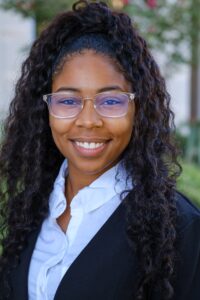
Nahzaria Wright – Navarro Early College High School (Central Texas)
“I advise because I care about my students’ future.”
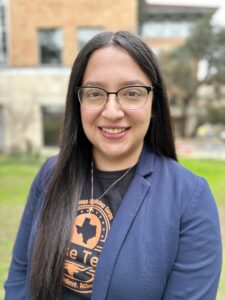
Ashley Marron – PSJA North High School (Rio Grande Valley)
“I advise because I believe every student deserves the support to pursue a higher education.”
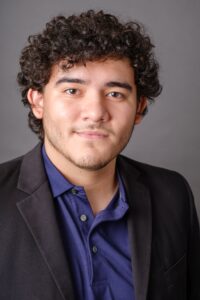
Daniel Gonzalez-Franco – Palmview High School (Rio Grande Valley)
“I advise because education is a transformative journey, and as an adviser, I have the privilege of guiding students towards their fullest potential.”

Janaya Brock – Akins High School (Central Texas)
“I advise because I want students to know their dreams can come true.”
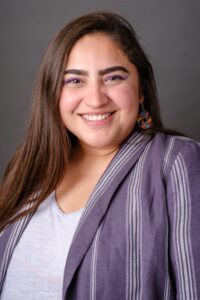
America Ogaz – El Dorado High School (El Paso)
“I advise because I want underepresented students, like myself, to have all the resources they need to be successful in whatever life path they choose after high school.”
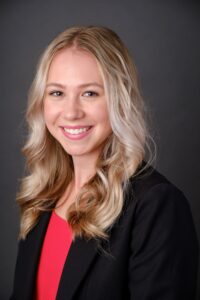
Abby Caldwell – Travis High School (Central Texas)
“I advise because I want to help every student access all the opportunities and advantages that higher education affords.”

Edouwaye Omere – Lancaster High School (Dallas)
“I advise because I want to enhance the true potential of future generations. I want to help the youth become the best versions of themselves so they can build generational wealth and legacies.”
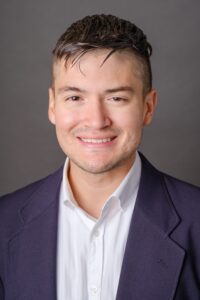
Ian Valdez – Socorro High School (El Paso)
“I advise because I believe in the potential of my El Paso community.”

Mariana Velasco – PSJA High School (Rio Grande Valley)
“I advise because students should receive all the support and guidance that they need in this new journey.”

Jacqueline Davila – PSJA Southwest High School (Rio Grande Valley)
“I advise because every student deserves a voice and a support system.”

Javier Castellanos – San Marcos High School (Central Texas)
“I advise because I want to instill confidence into students as they enter a new chapter in their life.”
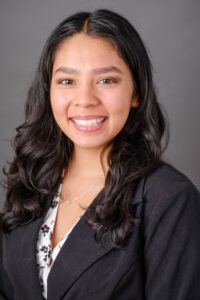
Melissa Murillo Morales – Thelma Salinas STEM High School, Academy of Health Science Professions and STEM High School, Jimmy Carter High School
“I advise because I want to advise students to help prevent them from struggling the way I did.”
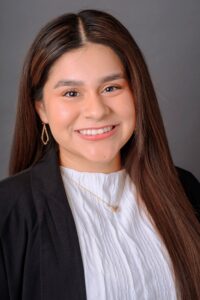
Vanessa Diaz – PSJA Memorial High School (Rio Grande Valley)
“I advise because my students have the potential to break generational curses and achieve their dreams.”
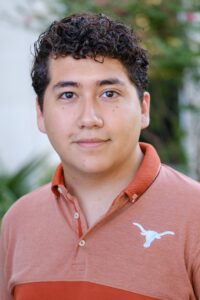
Gilbert Berrones – La Joya High School (Rio Grande Valley)
“I advise because I know I can make an impact in those that do not see the potential in themselves.”

Nikieria Tucker – Dekaney High School (Houston)
“I advise because I believe every student should have a post-secondary Plan and learn the tools to
exceed beyond high school and in life.”
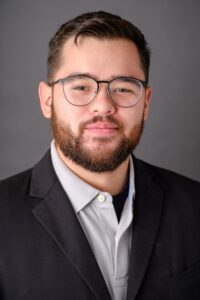
Juan Olivas – Juarez-Lincoln High School (Rio Grande Valley)
“I advise because I know students are capable of being more than just another statistic.”


